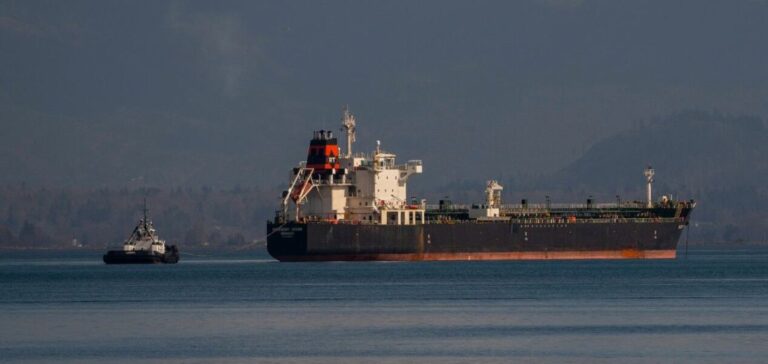Russian seaborne crude oil exports recorded a significant 5% increase in June, reaching a total of 3.71 million barrels per day (b/d), according to tanker tracking data. This increase comes despite Moscow’s commitments to adhere more strictly to its OPEC+ production targets.
Exports of petroleum products, on the other hand, fell by 9% to 2.18 million b/d, even as Russian refineries, damaged by Ukrainian drone attacks, recovered their capacity. Disruptions to shipments from the Primorsk and Kozmino terminals have been resolved, allowing oil flows to be fully restored.
Increased shipments to India and reduced shipments to China
India, the main buyer of Russian oil, saw its imports rise by 130,000 b/d in June, while exports to China fell by 130,000 b/d to a low of 980,000 b/d, due to seasonal maintenance at Chinese refineries. This dynamic reflects a shift in Russia’s trade flows towards Asian markets.
At the same time, the European Union’s new sanctions against Sovcomflot and 17 of its tankers, adopted on June 24, were not enough to significantly reduce the value of Russian exports. Efforts to circumvent the Western price cap have multiplied, keeping Russian crude competitive.
Impact of Sanctions and Maintenance of Fuel Exports
Despite the growing sanctions, the discount on Urals crude continued to fall, reaching $13.90 per barrel at the end of June, the lowest since November 2023. This discount reduction is due to ongoing demand and effective bypass strategies.
Russian fuel exports, although down overall, benefited from the temporary lifting of the ban on gasoline exports, with a notable increase in shipments to 150,000 b/d in June. The Russian government has extended this suspension until the end of July, anticipating stable or rising fuel exports.
Exports of diesel, the main export product, fell slightly to 783,000 b/d, down on pre-drone attack levels. Naphtha and VGO also saw their shipments drop significantly in June.
Russia’s seaborne crude oil exports showed notable resilience in June, despite OPEC+ commitments and Western sanctions. This resilience is underpinned by a strategy of market diversification and rapid adaptation to the constraints imposed by the conflict in Ukraine and international measures.






















